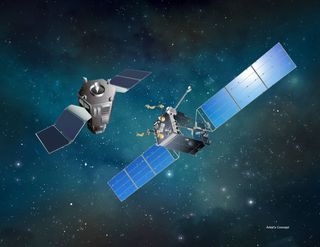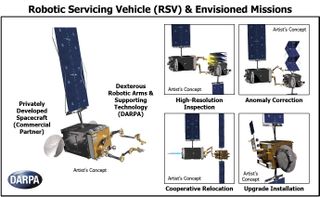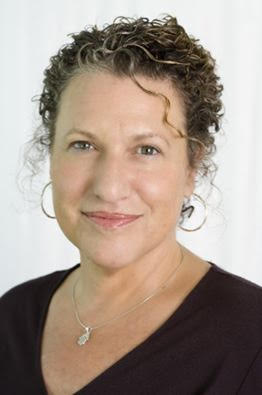Orbital Loses Bid to Stop DARPA Satellite-Servicing Project

Spaceflight provider Orbital ATK this week lost its bid to stop the Defense Advanced Research Projects Agency (DARPA) from moving ahead with a partnership with a competing company, Space Systems Loral, to demonstrate in-space satellite servicing, federal court documents show.
In February, Orbital ATK filed suit in U.S. District Court for the Eastern District of Virginia to stop the program, known as Robotic Servicing of Geosynchronous Satellites, or RSGS, on grounds that it violates provisions of the 2010 U.S. National Space Policy.
DARPA had selected California-based Space Systems Loral (SSL) as the agency's commercial partner for RSGS, with the goal of building a spacecraft to inspect, capture, reposition, repair and upgrade satellites in geosynchronous orbits. SSL also intends to demonstrate satellite refueling. [DARPA's Futuristic Satellite-Servicing Plan in Images]
Upon completion of the work for DARPA, SSL can sell RSGS services to commercial and government satellite operators, work that Orbital ATK said will compete with its own satellite-servicing business. Orbital ATK filed suit on grounds that the RSGS program violates U.S. space policy, which in part bans the government from building or buying systems that "preclude, discourage or compete with commercial systems."
Orbital ATK last year unveiled designs for a fleet of robotic service satellites it calls Mission Extension Vehicles and signed Intelsat as its first customer.
In a ruling issued on Wednesday and filed yesterday (July 13), U.S. District Judge Leonie Brinkema dismissed the suit, saying Orbital ATK failed to demonstrate that the National Space Policy "carries the force of law."

Orbital ATK pledged to continue to fight for "fair competition in the satellite-servicing arena" by pushing the issue with the White House, the Department of Defense and Congress, the company said in a statement.
Get the Space.com Newsletter
Breaking space news, the latest updates on rocket launches, skywatching events and more!
"We intend to work with those … who believe in fair competition and would never want U.S. taxpayer dollars to favor one company over others," Orbital said.
Space Systems Loral said it was not a party to the Orbital ATK lawsuit against DARPA. "Per the fully compliant proposal we submitted, SSL is progressing with the design of the RSGS spacecraft," SSL Senior Vice President Steve Oldham said in a statement.
Another lawsuit in the same court brought by Space Systems Loral against Orbital ATK remains pending. Space Systems Loral is suing Orbital over allegations that computer hacking at a NASA field center resulted in Orbital ATK accessing proprietary Loral satellite-servicing technical data and business plans.
Space Systems Loral in December won a NASA contract for a satellite-servicing program called Restore-L, which is slated to launch in 2020. Restore-L is intended to demonstrate satellite refueling in low-Earth orbit using a NASA/USGS Landsat remote-sensing satellite.
Irene Klotz can be reached on Twitter at @free_space. Follow us @Spacedotcom, Facebook and Google+. Original article on Space.com.
Join our Space Forums to keep talking space on the latest missions, night sky and more! And if you have a news tip, correction or comment, let us know at: community@space.com.

Irene Klotz is a founding member and long-time contributor to Space.com. She concurrently spent 25 years as a wire service reporter and freelance writer, specializing in space exploration, planetary science, astronomy and the search for life beyond Earth. A graduate of Northwestern University, Irene currently serves as Space Editor for Aviation Week & Space Technology.
